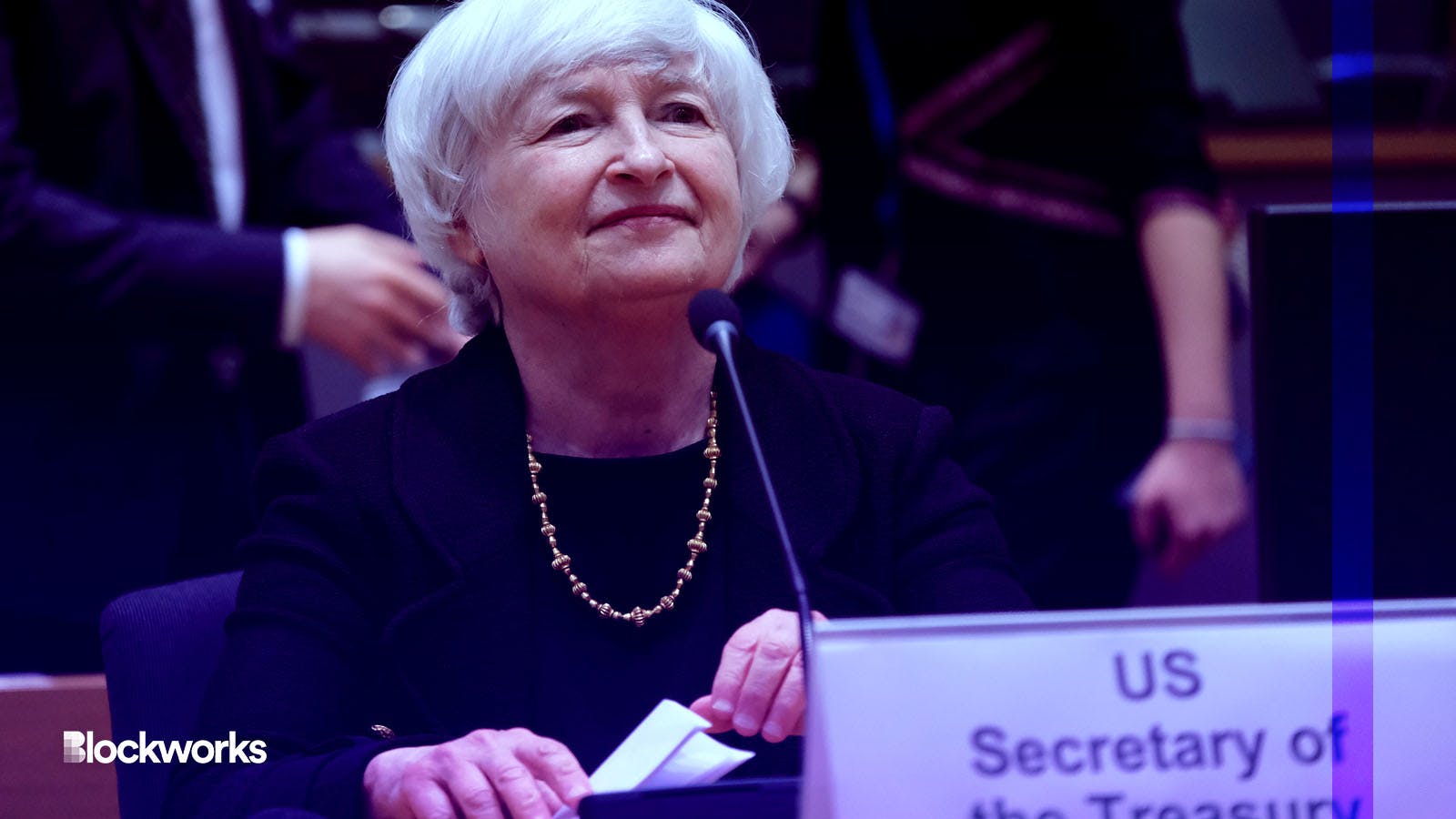Yellen Proposes Tougher Rules For ‘Nonbanks’ Providing Financial Services
The FSOC’s proposed nonbank framework will “enhance” ability to “address financial stability risks”

Alexandros Michailidis/Shutterstock modified by Blockworks
Treasury Secretary Janet Yellen has proposed tougher rules on nonbanks.
Yellen wants to make it simpler for nonbanks to be supervised by the Federal Reserve Board, and remove what she describes as “inappropriate hurdles” that were made in 2019 with changes made under the Trump administration.
Nonbanks are entities that do not hold a bank license but provide certain financial services. These entities are also not insured by the Federal Deposit Insurance Corporation (FDIC).
Examples of nonbanks include venture capitalist firms, crypto entities and hedge funds.
A recent International Monetary Fund report identified multiple emerging threats to the financial system as inflation spikes, interest rates rise and non-banking entities face liquidity crunches.
Under the Financial Stability Oversight Committee Council’s proposed framework, there would be a two-step process to determine whether a company should be supervised by the Federal Reserve.
The FSOC was created in 2010 by the Dodd-Frank Act following the 2008 financial crisis. It is responsible for identifying and managing risks to the overall stability of the financial system.
The nonbank will first go through an analysis based on data provided to the FSOC, and then the Federal Reserve will supervise the company as it undergoes an “in-depth valuation” of data from the company itself, regulatory agencies and public information.
The Council voted unanimously to open the proposal up to public comment.
Yellen said that the proposal allows the FSOC to “engage with the company’s primary regulator during any designation review. And through the separate proposed analytic framework, we are providing the public with more information about how nonbank designation fits into the Council’s broader approach to financial stability risk monitoring and mitigation.”
Last month, the collapses of Silicon Valley Bank (SVB) and Signature Bank led to fears about the overall stability of the banking system.
“Our banking system remains sound, with strong capital and liquidity positions,” Yellen said on Friday.
Get the news in your inbox. Explore Blockworks newsletters:
- The Breakdown: Decoding crypto and the markets. Daily.
- Empire: Crypto news and analysis to start your day.
- Forward Guidance: The intersection of crypto, macro and policy.
- 0xResearch: Alpha directly in your inbox.
- Lightspeed: All things Solana.
- The Drop: Apps, games, memes and more.
- Supply Shock: Bitcoin, bitcoin, bitcoin.






